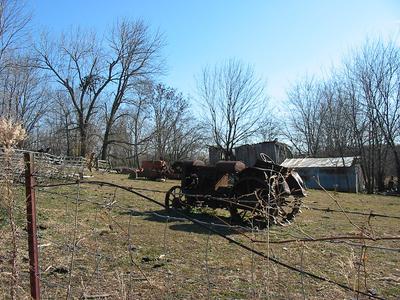Code Enforcement in Rural Areas

Reviewed: June 12, 2024
Visitor Question: Is there any code enforcement in rural areas? I'm tired of living around junked cars, rusting machinery, old couches on the front porch, gutters falling down, or for that matter porches falling down. Who is responsible for seeing that these things don't ruin my view of the countryside?
Editors Reply: The answer to your first question depends strictly on the rural area. Every place in the U.S. at least has the potential to have code enforcement if the governing body chooses to enact a code (law) providing for it. Each county and city, town, or village has that power as part of its general "police power." (Police power is mostly a legal theory and has nothing to do with police or crime as such.)
Some states give their local governments more latitude and authority in the kinds of matters you are describing than others. But all can do some basic enforcement if, and only if, they have passed a law. Most jurisdictions choose to enact one of the international codes, sometimes with their own local modifications included in their ordinance.
Being practical, it is a hard sell right now in the rural U.S. to add code enforcement if none exists. It's even difficult to push a government to enforce the codes they already have passed, as you will see if you browse the questions and answers on the community development question page.
We want to make a distinction among the examples you gave. The junk cars, old machines, and sad looking furniture outdoors relate mostly to appearance, although in some cases we have seen, the accumulated rusty stuff is so extensive it even amounts to a groundwater pollution threat!
Our experience is that it is more difficult for rural areas to take a stance on code enforcement on these appearance related matters. It is cultural in some or most rural areas for people to be able to handle their outcast belongings in a manner that they see fit. Some homesteads will look neat as a pin, without a single thing outdoors that wouldn't be outdoors in a ritzy suburb. Other homesteads will look as if everything that isn't used any more is placed randomly outside.
Part of this behavior is due to the fact that historically, most rural areas did not have any solid waste collection, so disposing of a sofa wasn't as easy as calling the garbage contractor and asking them to pick up my old couch on Wednesday.
But now almost all states have some degree of solid waste collection in many rural areas, especially those relatively close to a town or city. Sometimes larger items have to be hauled to a town dump by the homeowner though.
But there is a second category of items that you are finding offensive. Those relate either to the durability or safety of the building. These include the gutter falling off and the disintegrating porch. Gutters actually function to move stormwater away from the foundation of the house, and therefore they serve an important function in preserving your housing stock and preventing a house from going downhill. Unsteady porches of course pose a safety risk both to the property occupant and visitors.
We make this distinction because we find it easier to argue in favor of a housing maintenance code than a broader appearance-oriented code in rural areas. Ask any state economic development official in a U.S. state having a substantial rural area, and you will find that a shortage of decent, livable housing hinders the attraction and retention of business within that community.
If you decide you want to start a campaign to adopt code enforcement in your rural area, you may find it easier to make the argument that your area needs attractive housing in order to grow economically.
In arguing for code enforcement, emphasize that there is no need to think up the codes from scratch and that there is an international body that does this. Be forceful in suggesting that local cultural standards could be served by writing in exceptions to the international code when it is enacted. Yes, that is some real work for the local government and any citizen panels it chooses to empower in an advisory role. However, the flexibility to accommodate local preferences often means that baseline code enforcement can occur.
For more information, you need to check into our pages on code enforcement (on the navigation of each page), as well as the existing building code and property maintenance code pages that are linked from the basic code enforcement introduction.
In the process of arguing for codes that would help your area preserve or enhance the longevity and safety of buildings in service to economic development, you could identify allies who also want to see the appearance-related issues resolved. This two-part approach may be a way forward if you want to see some code enforcement in your own rural neighborhood.
The conversation about structural integrity will lead naturally to some mentions of appearance of buildings, and upgrading the housing stock will have a subtle effect toward inspiring property owners to clean up their land in general. People are naturally competitive and social, so if we see our neighbor decide to haul off dad's rusting plow, we might suddenly think it would be a good idea for us to get rid of our three old pick-ups sitting in the pasture next to the house.
- A Good Community >
- Community Development Questions >
- Code Enforcement Questions
Join GOOD COMMUNITY PLUS, which provides you monthly with short features or tips about timely topics for neighborhoods, towns and cities, community organizations, and rural or small town environments. Unsubscribe any time. Give it a try.